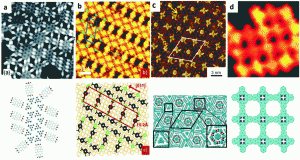We are pleased to invite you to the Skoltech Colloquium.
What: Charge Transfer at Nanostructured Interfaces.
When: March 5, 4 pm
Where: Moscow School of Management, Beijing-2 Auditorium – China cluster
Speaker: Prof. Keith J. Stevenson, Professor; Director of the Center for Electro-chemical Energy Storage (CEE), Skoltech
Abstract: The development of advanced materials to efficiently convert and store energy directly into electricity is of urgent importance due to the increasing energy demands of an ever increasing world population; and to the growing adoption of renewable energy technologies for energy generation. However, tremendous scientific challenges remain before successful implementation of any number of competing technologies such as solar cells, fuel cells, and batteries.
The materials, interfaces and architectures currently being explored are very challenging to interrogate by ensemble-averaging, bulk experimental methods since they do not exhibit long-range order or homogeneity, contain unique nano-morphological features and possess non-uniform chemical compositions and defect chemistry. Additionally, these materials and interfaces are dynamically “reactive” and their performance degrades significantly during use which limits their cycle life and their ultimate commercialization.
This presentation will describe the development of advanced methods using spatially resolved, depth-profiling surface analytical tools (STM, AFM, Raman, XPS and TOF-SIMS) on model two-dimensional electrode materials (graphene silicon, transition metal oxides,) for understanding the complexity of ion-coupled electron transfer processes at energy-related interfaces. Experiments will be described where the electrochemical response is strongly influenced by the electrode composition, morphology (bulk/thin film) and nanosize effects. Using this approach we have obtained a comprehensive understanding on fundamental ion and electron transfer processes vital to advancing energy conversion and storage technologies (Batteries, Fuel and Solar Cells).
If you like to participate and for further information or questions, please Liliya Abaimova
We look forward to seeing you.

